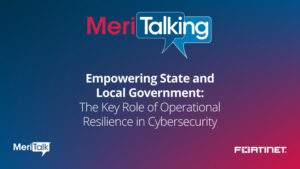The Biden-Harris administration unveiled its long-awaited National Cyber Workforce and Education Strategy (NCWES) today, securing commitments from 37 stakeholders – like the Cybersecurity and Infrastructure Security Agency (CISA) and the Department of Veterans Affairs (VA) – to increase the number of Americans in “good-paying, middle-class” cyber jobs.
California State Parks is partnering with what3words to deploy new geolocation technology in parks statewide.
Cyberattacks on the Federal government and industry tend to dominate headlines and the public discourse. Yet state and local governments are increasingly in the cyber crosshairs as well: 97 percent of local government IT executives listed cybersecurity as a key priority for the current fiscal year, a recent survey found.
The city of Baltimore has selected NWN Carousel as its private sector partner for the city’s $6.5 million investment in a next-generation public safety program. NWN Carousel, a cloud communications service provider, will help the city deploy a “911-in-a-Box” hybrid work experience for public safety agents tasked with taking 1.3 million calls per year.
The North Carolina State Board of Elections voted unanimously to approve a new voting system from Elections Systems and Software (ES&S) for use in state elections.
As many government services shift online, the Department of Justice (DoJ) is looking to improve web and mobile applications access for people with disabilities – particularly at the state and local government level – in compliance with the Americans with Disabilities Act (ADA).
FCC Chairwoman Jessica Rosenworcel said this week that she will begin an inquiry into sharply increasing the agency’s definition of what qualifies as a “broadband” service – with a focus on boosting service speeds for “fixed” broadband services.
The Federal Communications Commission (FCC) has adopted a new order that provides Tribal libraries and other E-Rate participants expanded access to funding to obtain affordable, high-speed broadband services and equipment to connect students and library patrons with online learning opportunities.
A new digital dashboard from the Consortium for School Networking (CoSN) aims to help school districts and communities leverage data to close digital equity gaps.
West Virginia University (WVU) is undertaking a full revamp of its information technology organization.













